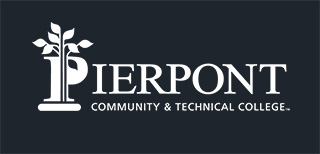Pierpont’s Shared Governance model fosters inclusive, transparent, and strategic decision-making by engaging faculty, staff, students, and leadership in collaborative planning and innovation. At the heart of this structure is the President’s Council (PC), which leads operational planning, budget prioritization, and institutional engagement. To support its mission, the PC establishes Work Groups that focus on key areas such as safety, technology, student success, and community outreach. These groups ensure that initiatives are data-informed, aligned with strategic goals, and reflective of the diverse voices across campus.
Purpose & Charge
The President’s Council (PC) serves as the primary leadership body for operational planning, budget prioritization, and institutional engagement at the college. It ensures that the institution remains data-driven, transparent, and strategically aligned while fostering broad participation across key functional areas.
The PC is charged with:
- Operational Planning & Alignment – Ensuring institutional operations reflect the strategic plan and align with accreditation requirements.
- Budget Planning & Monitoring – Reviewing budget requests, discussing fiscal priorities, and making recommendations for budget allocation and resource efficiency.
- Institutional Innovation – Soliciting and discussing great ideas from faculty, staff, and students to enhance college operations.
- Student Success & Employee Engagement – Identifying and discussing opportunities to support student retention, engagement, and employee satisfaction.
- Community & Workforce Engagement – Exploring ways to strengthen partnerships with local businesses, industries, and organizations to advance the college’s workforce development initiatives.
To explore, initiate, and implement great ideas from stakeholders, the President’s Council will establish working groups. Members of the working groups shall be representative of faculty, staff, and students and shall update and confer with PC on the progress of initiatives.
Work Group
Composition:
Minimum # of participants – 3
Maximum # of participants – 7
Members of President’s Council may volunteer to lead a working group and solicit other Pierpont team members and students to collaborate and lead the initiative.
Names of Work Groups
- Safety and Security
- Information Technology
- Strategic Enrollment and Student Success
- Community Outreach & Promoting Pierpont’s Presence
- Professional Development & Campus Engagement
- Health and Wellness
- Learning Resources
- Institutional Data and Effectiveness
- Accessibility and Digital Resources
Work Group Purposes – helping to implement changes/initiatives
While each of the Work Groups has a very focused purpose, each Work Group should consistently consider ways to reduce obstacles to student success, promote engagement, and support students and staff.
- Safety and Security
The Safety and Security Work Group is dedicated to promoting a safe and secure working and learning environment for students, faculty, staff, and visitors. The group will also review and assess safety and security issues brought forward by faculty, staff, and students. This workgroup will also make recommendations to enhance safety protocols, emergency response procedures, and campus security measures.
- Information Technology
The purpose of the Information Technology Workgroup is to evaluate the college’s current technology resources, identify areas for improvement, and plan for future enhancements that support academic and operational success. This group will work collaboratively to ensure that technology aligns with the needs of students, faculty, and staff. Responsibilities include gathering input from campus stakeholders, recommending solutions to address deficiencies, and supporting the adoption of new tools and systems that enhance teaching, learning, and administrative efficiency.
- Strategic Enrollment and Student Success
The Strategic Enrollment Workgroup drives the college’s growth through effective communication and enrollment strategies. It enhances the institutional image across various platforms, supports targeted recruitment and retention efforts, and develops marketing campaigns aligned with strategic goals. The committee also monitors and evaluates the strategic enrollment management plan, making data-driven adjustments to meet recruitment and retention targets, ensuring continued growth and student success.
- Community Outreach & Promoting Pierpont’s Presence
The purpose of the Community Outreach Work Group is to serve communities through volunteerism, build relationships with stakeholders, and promote inclusive enrollment activities within our 13-county service region.
- Professional Development and Campus Engagement
The Professional Development Work Group aims to support the professional learning goals of faculty, staff, and students at the College. The workgroup recommends and promotes training programs, workshops, seminars, and resources to enhance talent development and technical expertise in support of the institution’s mission and vision. *This working group does not replace the Faculty Senate’s committee on Faculty Development & Welfare, but includes and expands our collective focus on building engaging communities.
- Health and Wellness
The purpose of the Health and Wellness Work Group is to recommend and promote ways of improving and maintaining the health and wellness of our faculty, staff, and students. This group aims to provide campus activities and events that encourage a journey to better health.
- Learning Resources
The purpose of the Learning Resources Work Group will be to provide support to students, faculty, and staff in creating effective learning environments. This workgroup will identify a variety of learning resources designed to enhance student engagement, such as learning management systems, tutoring, library resources, learning strategies, and the bookstore. *This working group does not replace the Faculty Senate’s Learning Resources Committee but includes and expands our collective focus on supporting students’ learning.
- Institutional Data and Effectiveness
The Institutional Data and Effectiveness Work Group aims to understand challenges affecting student success and enhance institutional effectiveness through data analysis and evidence-based strategies. It collaborates with faculty and staff to identify key metrics for improvement. The committee fosters a culture of data-informed decision-making at the college and develops a community of data users.
- Accessibility of Digital Resources
The Department of Justice (DOJ) requires state and local governments to comply with new digital accessibility standards by April 24, 2026. This rule mandates that websites and mobile applications used by public entities be accessible to individuals with disabilities. This workgroup will evaluate current digital platforms, identify areas for improvement, and develop an action plan to ensure full compliance with the DOJ’s accessibility requirements by the established deadline.
